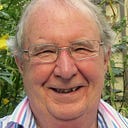Nicolas Sarkozy and Brenda Smith
The laws of man and nature
The ex-President of France, Nicolas Sarkozy, has been sentenced to three years in jail for corruption. Brenda Smith, who has lost her job as a school crossing lady, has been trapped on the 14th floor of a high rise block of flats in East London, clad in the same material as the late Grenfell Tower, for several months. She lost her husband to cancer five years ago and has had her hip replacement operation postponed for the fifth time since the Covid-19 outbreak and suffers lockdown alone.
Nicolas Sarkozy was born Nicolas Paul Stéphane Sarközy de Nagy-Bocsa. He has spent much of his life in the affluent Parisian suburb of Neuilly-sur-Seine of which he was to become mayor between 1983 and 2002. The judge in his corruption case, despite saying that “he knew what he was doing was wrong” and that “he had given the public a very poor image of justice”, decided in her wisdom to suspend two of the three years of his prison sentence while allowing him to spend the remaining year wearing a security tag at home.
Brenda Smith was born Brenda Walker. She worked as a cleaner in the local NHS hospital prior to her retirement and taking up her job as a “lollypop lady”. The pain in her hip now prevents Brenda from leaving her 14th floor flat and she has to rely upon neighbours to do a weekly shop for her. Her two sons live more than forty five miles from her home and lockdown rules prevent them from visiting her.
The current French lockdown rules consist largely of a curfew between the hours of 6pm and 6am. This would presumably allow Sarkozy’s friends and family to visit him to discuss the future direction of European politics while enjoying fine dining and expensive wines. After all he had been accused of receiving 50 million euros from Colonel Gaddafi for his presidential campaign so there must be some of it left over. Curiously the trial never went ahead since the body of the main witness against Sarkozy was found floating in the Danube. He is still awaiting a further trial on a charge of the attempted bribery of a judge. The trial has been postponed by the court having been told that one of hos co-defendants is uanble attend for health reasons.
“he knew what he was doing was wrong” and that “he had given the public a very poor image of justice” — Judge Christine Mèe presiding at the Sarkozy trial.
Meanwhile Brenda relies heavily on food banks and the kindness of strangers.
For generations we have known that there is one law for the rich and influential and another for the man in the street. Anatole France, the French poet and novelist, put it even more effectively — “The law, in its majestic equality, forbids the rich as well as the poor to sleep under bridges, to beg in the streets, and to steal bread.”
Nicolas Sarkozy will appeal against his sentence while Brenda has no appeal against the laws of nature which, since they cannot be commuted, can be very cruel indeed. In the 19th century, Charles Dickens wrote of Mr Bumble, the victim of a domineering wife in Oliver Twist, that “the law is an ass — an idiot. If that’s the eye of the law, then the law is a bachelor and the worst I wish the law is that his eye may be opened by experience.” Nearly two centuries later we are still waiting for that “eye” to remain open in all cases. Justice may be blind but the law should not only see but be seen to be done.
Manipulation of the law should not necessarily be banned but it should be strongly challenged. One particular case involved a businessman who crashed his car while driving over the drink-drive limit incurring severe injuries requiring transport to hospital by ambulance. He was acquitted of drink-driving because the relevant legislation says that the blood must be taken by someone who is not associated with the driver’s care. In this case, it was taken by a surgeon directly involved in his care — so the case was thrown out.
The police recorded a high-profile professional footballer driving at speeds of 132mph but his sentence was commuted because there were irregularities with the road markings, which were too short, giving a *lower* speed than expected.
Another footballer’s wife timed by the police driving at 96mph was acquitted because she was driving her husband’s car. The requisite form was sent to her husband, the owner of the vehicle, but she filled it in. Her solicitor argued that the form should have been sent to the wife who committed the offence rather than the owner of the car. She was therefore acquitted.
Ethically, these cases were correct but, morally, they were wrong. A moral precept is an idea or opinion that’s driven by a desire to be good. An ethical code is a set of rules that defines allowable actions or correct behaviour. Unfortunately common sense has no basis in law.
“The law, in its majestic equality, forbids the rich as well as the poor to sleep under bridges, to beg in the streets, and to steal bread.” — Anatole France
